Ethical Implications of Zero-Hour Contracts: A Collaborative Study
VerifiedAdded on 2023/06/04
|5
|808
|255
Essay
AI Summary
This essay delves into the ethical considerations surrounding zero-hour contracts, examining their impact on workers, businesses, and society. It analyzes the benefits and drawbacks of these contracts, highlighting the flexibility they offer some individuals while also acknowledging the job insecurity and potential for exploitation they can create. The essay explores how zero-hour contracts affect workers' well-being, social lives, and economic stability, referencing research findings and respondent experiences. Furthermore, it discusses the ethical responsibilities of businesses in utilizing zero-hour contracts, advocating for fair treatment, training, and improved working conditions for employees. The essay concludes by emphasizing the importance of balancing organizational objectives with the ethical treatment of workers, promoting a more equitable and sustainable approach to employment practices. Desklib offers this document along with a variety of other resources to aid in student learning.
1 out of 5
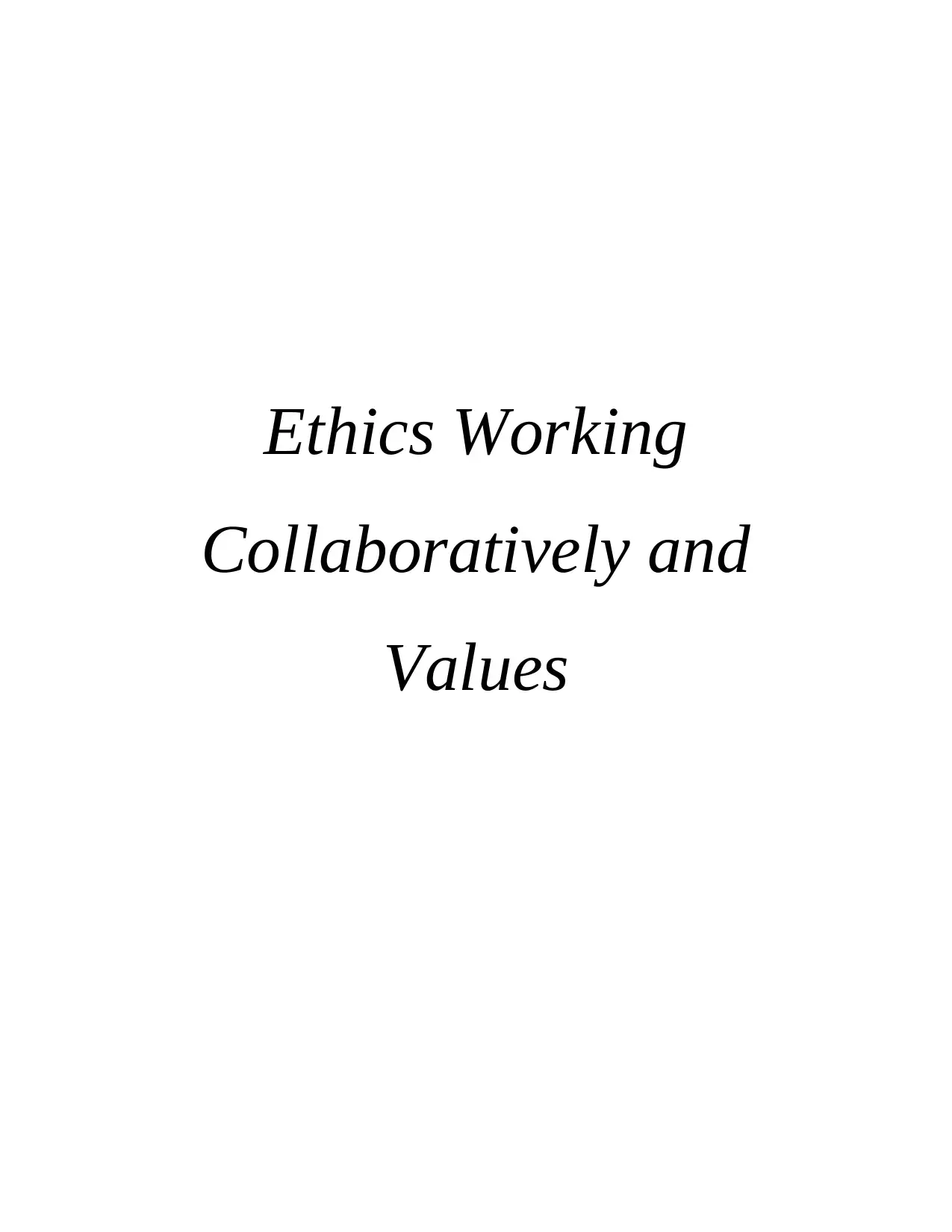
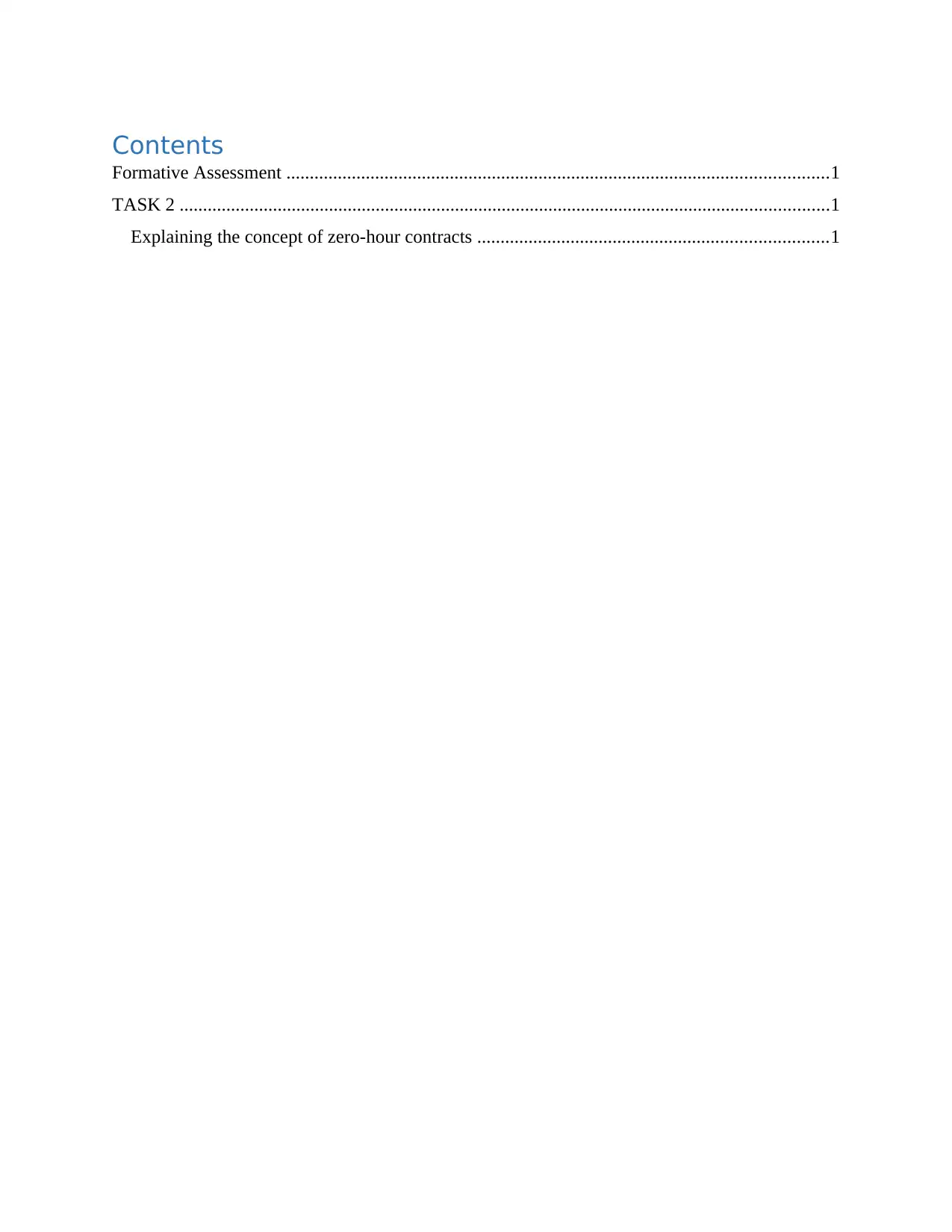
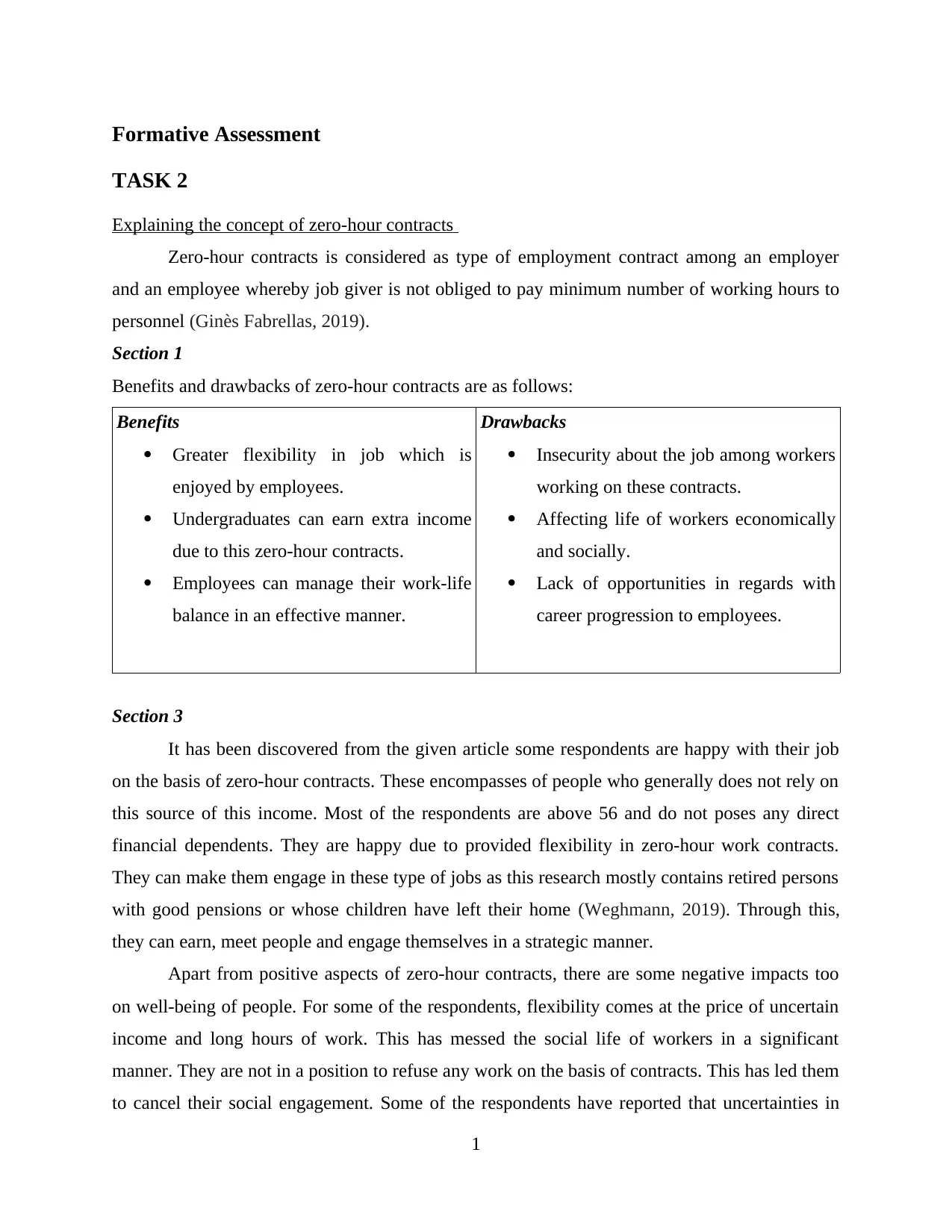

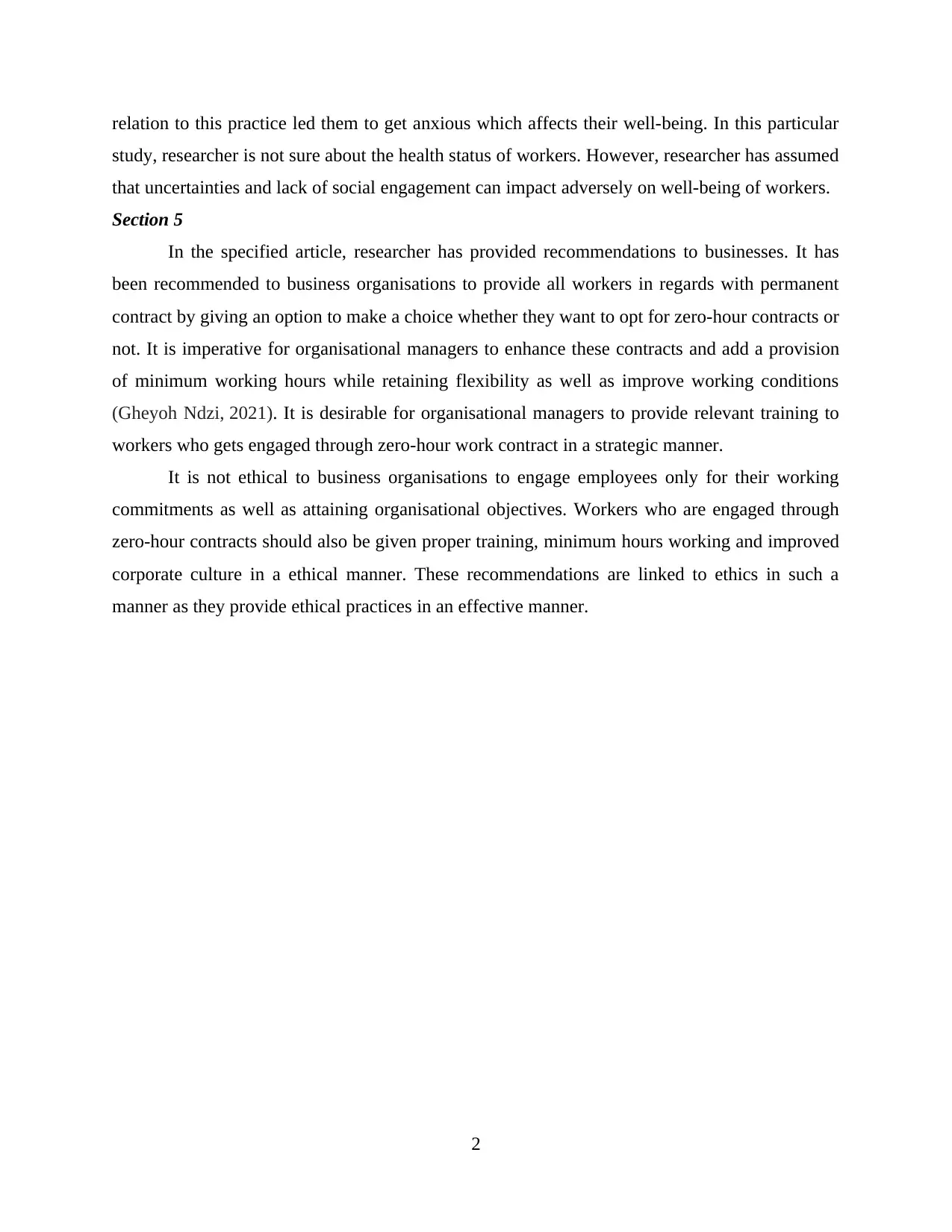
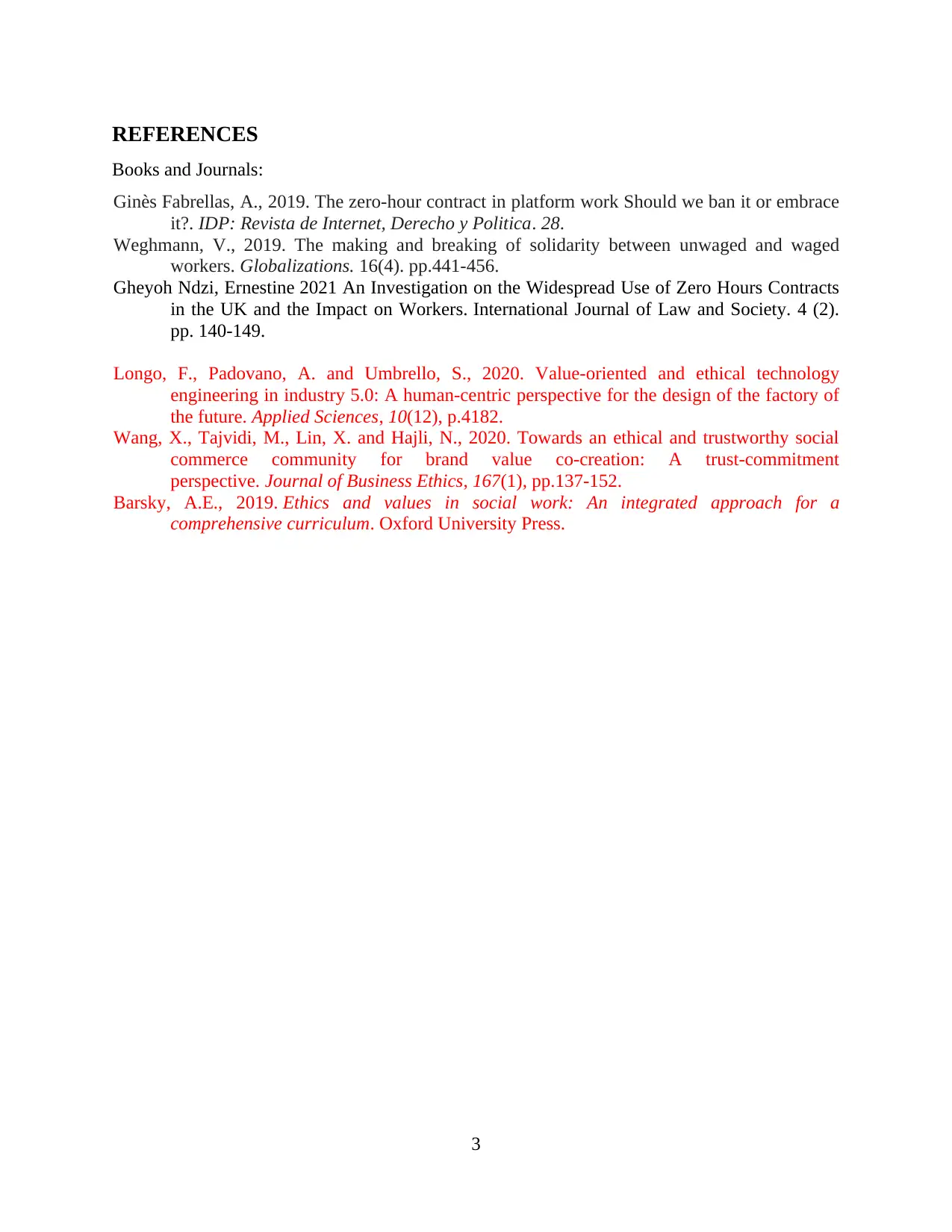




![[object Object]](/_next/static/media/star-bottom.7253800d.svg)